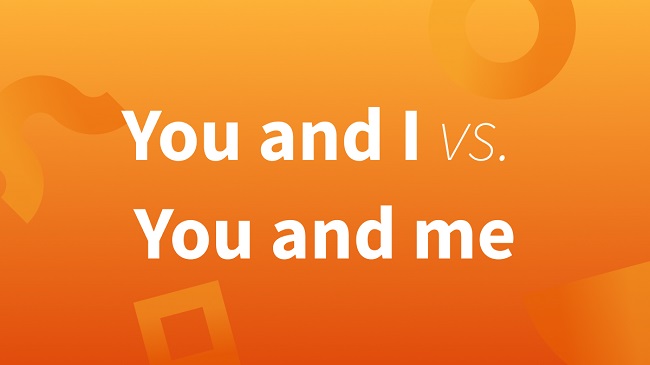Do you say “between you and I” or “between you and me”? This is a common grammatical question, as many writers struggle with the difference between me and I.
I and I are pronouns. However, I and I are not the same thing. The pronouns “I” and “me” are examples of subject and object pronouns, respectively.

In this circumstance, what does that mean?
Just between You and I, Why is that So?
Actually, the proper phrase is something we can discuss further.
A preposition—”between”—is present in the phrase. To clarify, I am the object of the preposition, hence I must use an object pronoun (or the word “myself”) in this sentence.
Between you and I is now widely recognised as a full-fledged idiom in its own right. It was so common that even Shakespeare made use of it.
Read Also:
- A Person’s Metabolism Remains Constant Throughout Life
- Real Simple Six Habits That are Secretly Making You Miserable
Reason being, I is used occasionally owing to hypercorrection. We use it instead of me because it “sounds” more natural in those contexts. The phrase “between you and I” has been in use for generations, despite the criticism of grammar purists.
In reality, it is to be anticipated that language will evolve over time. According to Matthew Parris, “There is no authority,” as he states in the book’s preface for the 2003 version of The King’s English.
It is not possible to restrict speech in English. No one is in charge.” In time, native English speakers will take the reins as the definitive source.
Common practises, such as saying “I’m good” instead of “I’m well,” have evolved to sound extremely organic. And as they are used more and more, they are eventually accepted. The colloquial expression between you and I is the same.
Read Also:
- How to Tell if Your Girlfriend is Faking
- Who is the Dumbest Person in the World
- Compare and Contrast a Casual Friendship With a Close Friendship.
The Correct Usage of “Between You and Me”
Here are a few suggestions for using the more formal term “between you and me” in your writing. It can be used at either the beginning or end of a statement, for example:
- I’m not convinced that’s the greatest colour for the house’s exterior, but we won’t tell anyone if we don’t.
- For some time now, I’ve felt like we’ve grown apart. Do you think there’s a problem?
- I assure you that whatever you tell me will remain between just the two of us.
- You love to be the centre of attention, but I despise it.























